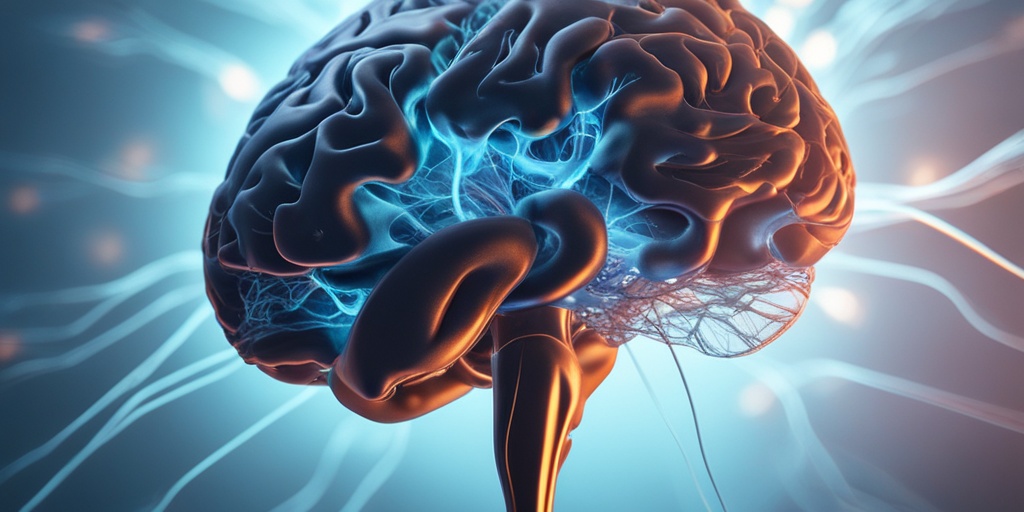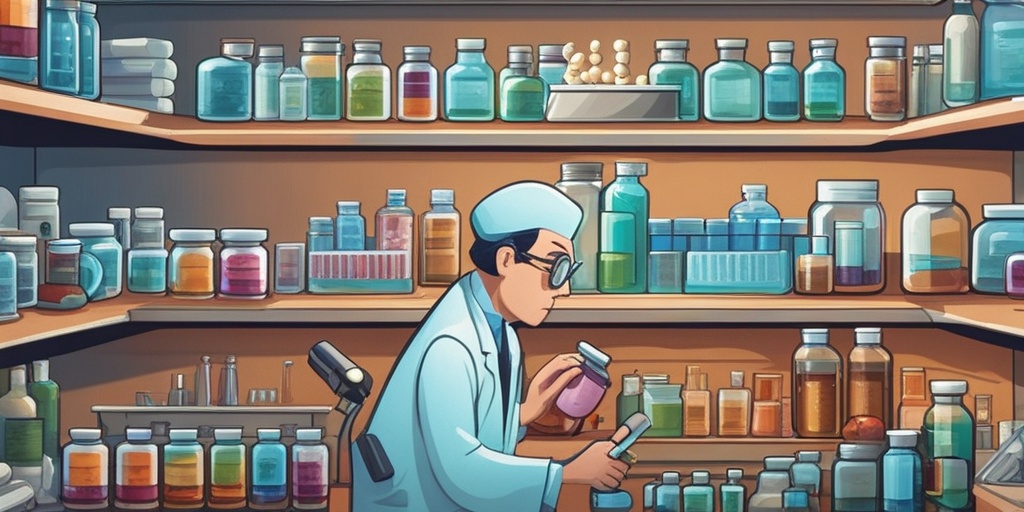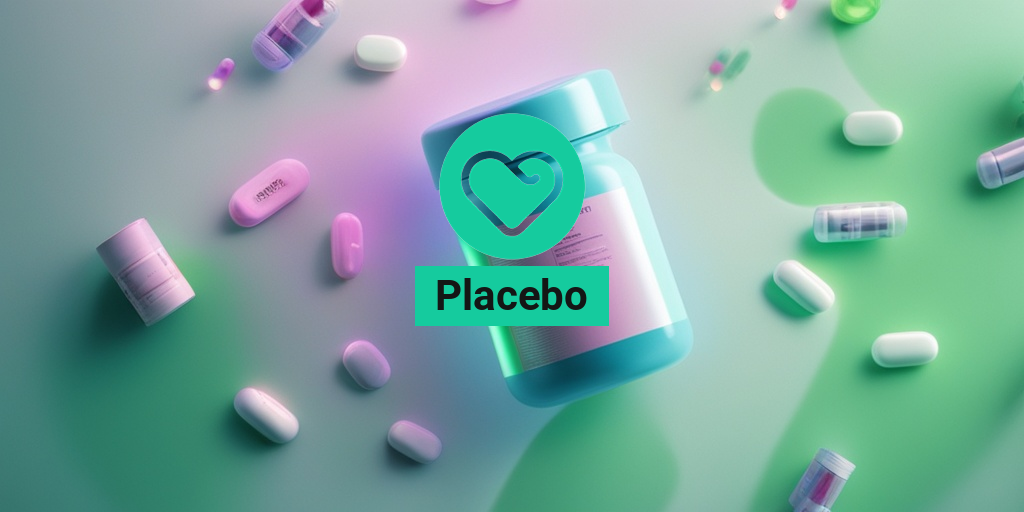What is the Placebo Effect?
The placebo effect is a fascinating phenomenon that has been observed in various fields, including medicine, psychology, and even music (yes, music! We’ll get to that later). But what exactly is it? In simple terms, the placebo effect refers to a situation where a person experiences a perceived improvement in their condition or symptoms after receiving a dummy treatment, medication, or intervention that has no actual therapeutic value.
Think of it like this: Imagine you’re feeling unwell, and your doctor gives you a sugar pill, telling you it’s a new miracle cure. You take the pill, and to your surprise, you start feeling better. But here’s the catch – the pill is just a placebo, a dummy treatment with no real medicinal properties. So, what’s going on? Why did you feel better?
The answer lies in the power of our minds. The placebo effect is a testament to the incredible influence our brains have over our bodies. When we believe we’re receiving a real treatment, our brains can actually trigger a response that makes us feel better, even if the treatment itself is inert. This phenomenon has been observed in countless studies, and it’s a crucial aspect of medical research and treatment.
Placebo Effect Definition Psychology
In psychology, the placebo effect is often attributed to the patient’s expectations, beliefs, and perceptions. When we expect a treatment to work, our brains release chemicals that can actually produce a physical response. This can lead to a range of effects, from pain relief to improved mood and even physical healing.
For example, studies have shown that patients who receive a placebo treatment for pain relief often experience a significant reduction in pain, even though the treatment itself has no actual analgesic properties. This is because their brains are responding to the expectation of pain relief, releasing endorphins and other chemicals that help to reduce pain.
How Does the Placebo Effect Work?
So, how does the placebo effect actually work? While the exact mechanisms are still not fully understood, research suggests that it involves a complex interplay between our brains, nervous systems, and bodies.
Here are some key factors that contribute to the placebo effect:
- Expectations: When we expect a treatment to work, our brains are more likely to respond positively.
- Beliefs: Our beliefs about the treatment, the doctor, and the medical system can all influence our response.
- Conditioning: We can be conditioned to respond to certain stimuli, such as the sight of a doctor’s white coat or the smell of a hospital.
- Neurotransmitters: The release of neurotransmitters like dopamine, endorphins, and serotonin can all play a role in the placebo effect.
- Hormonal responses: Hormonal changes, such as the release of oxytocin, can also contribute to the placebo effect.
It’s fascinating to think about the implications of the placebo effect. It highlights the incredible power of our minds and the importance of considering the psychological and emotional aspects of healthcare.
At Yesil Health AI (yesilhealth.com), we understand the importance of evidence-based health answers. Our AI-powered platform provides accurate and reliable information to help you make informed decisions about your health. Whether you’re exploring the placebo effect or seeking answers to other health-related questions, we’re here to help.
So, the next time you hear someone say, “It’s just a placebo effect,” remember that it’s not just about the treatment itself – it’s about the incredible power of our minds to shape our experiences and outcomes. 💊💡

Placebo Effect Examples in Medicine
The placebo effect is a fascinating phenomenon that has been observed in various medical settings. It’s a testament to the incredible power of the human mind and its ability to influence our physical health. In this section, we’ll explore some remarkable examples of the placebo effect in medicine.
Chronic Back Pain Relief
A study published in the Journal of the American Medical Association (JAMA) found that placebos can alleviate chronic back pain, even when patients know they’re receiving a placebo! 🤯 This is a remarkable finding, as chronic back pain is a debilitating condition that affects millions of people worldwide. The study’s results suggest that the placebo effect can be a powerful tool in managing pain.
Cancer Treatment
In some cancer clinical trials, patients who received placebos reported improved symptoms and quality of life, even though they weren’t receiving any active treatment. This is often referred to as the “placebo response.” While it’s essential to note that placebos are not a substitute for proven cancer treatments, the placebo effect can still have a significant impact on a patient’s overall well-being.
Psychological Disorders
The placebo effect has also been observed in the treatment of psychological disorders such as depression and anxiety. In some studies, patients who received placebos reported significant improvements in their symptoms, similar to those who received active medication. This highlights the complex interplay between the mind and body in mental health.
The Science Behind the Placebo Effect
So, what’s behind the placebo effect? How does it work, and what are the underlying mechanisms that drive this phenomenon? Let’s dive into the fascinating science behind the placebo effect.
Neurotransmitters and Brain Chemistry
Research suggests that the placebo effect is closely tied to the release of certain neurotransmitters, such as dopamine, endorphins, and serotonin. These chemicals play a crucial role in regulating our mood, motivation, and perception of pain. When we expect a treatment to work, our brain chemistry changes, releasing these neurotransmitters and influencing our physical response.
Conditioning and Expectation
The placebo effect is also influenced by conditioning and expectation. When we’re given a treatment, we often have certain expectations about its effectiveness. If we believe a treatment will work, our brain is more likely to respond positively. This is because our brain is wired to respond to cues and associations, which can trigger a placebo response.
The Power of Suggestion
The power of suggestion is another critical factor in the placebo effect. When a healthcare professional provides a treatment, they often convey a sense of confidence and authority. This can influence our perception of the treatment’s effectiveness, making us more likely to experience a placebo response. 💊
By understanding the science behind the placebo effect, we can better appreciate the complex interplay between our mind, body, and environment. The placebo effect is a powerful reminder of the incredible potential of our minds to influence our physical health and well-being.

Benefits of the Placebo Effect
The placebo effect is a fascinating phenomenon that has been observed in various fields, including medicine, psychology, and even music (yes, you read that right – the British rock band Placebo has a huge following!). But what exactly is the placebo effect, and how can it benefit us?
What is the Placebo Effect?
Simply put, the placebo effect is a phenomenon where a dummy treatment or inactive substance produces a real, measurable response in a person’s body or mind. This can happen when a person believes they are receiving a real treatment, even if it’s just a sugar pill or a saline injection. The power of expectation and belief can be so strong that it triggers a physical or emotional response.
Pain Relief and Beyond
One of the most significant benefits of the placebo effect is its ability to provide pain relief. Studies have shown that placebos can be just as effective as real painkillers in reducing chronic pain, even when patients know they’re receiving a placebo! This has huge implications for the treatment of chronic pain, which affects millions of people worldwide.
But the benefits of the placebo effect don’t stop at pain relief. It has also been shown to:
- Improve symptoms of anxiety and depression
- Enhance cognitive function and memory
- Boost the immune system
- Even alleviate symptoms of irritable bowel syndrome (IBS)!
The Power of Mind Over Matter
The placebo effect is a powerful reminder of the incredible influence our minds have over our bodies. By harnessing the power of expectation and belief, we can tap into our body’s natural healing abilities and experience real, tangible benefits.
As the saying goes, “mind over matter” – and the placebo effect is the perfect example of this in action. So, the next time you’re feeling under the weather, remember that your mind has the power to heal and transform your body!
Limitations of the Placebo Effect
While the placebo effect is an incredible phenomenon with many benefits, it’s not a magic bullet that can cure everything. There are some important limitations to keep in mind:
It’s Not a Cure-All
The placebo effect is not a substitute for real medical treatment. It’s essential to remember that placebos are not a cure for serious medical conditions, and they should never be used as a replacement for evidence-based medicine.
In fact, relying solely on the placebo effect can be dangerous, as it may delay or prevent people from seeking proper medical attention. So, while the placebo effect can be a useful tool, it’s crucial to use it in conjunction with real medical treatment, not instead of it.
Individual Results May Vary
The placebo effect can be highly individualized, and what works for one person may not work for another. This means that it’s essential to approach the placebo effect with a critical and open-minded perspective, recognizing that it may not work for everyone.
Additionally, the placebo effect can be influenced by a range of factors, including a person’s personality, expectations, and past experiences. This means that it’s crucial to consider these factors when using the placebo effect in a therapeutic setting.
By understanding the benefits and limitations of the placebo effect, we can harness its power to improve our health and wellbeing, while also recognizing its limitations and potential pitfalls. 💊💡

Ethical Considerations of the Placebo Effect
The placebo effect is a fascinating phenomenon that has been extensively studied in the field of medicine. While it has the potential to revolutionize the way we approach healthcare, it also raises several ethical concerns. In this section, we’ll delve into the ethical considerations of the placebo effect and explore the implications of using it as a treatment.
Deception and Informed Consent
One of the most significant ethical concerns surrounding the placebo effect is the issue of deception. In traditional placebo-controlled trials, patients are not informed that they may be receiving a placebo instead of an active treatment. This lack of transparency raises questions about informed consent, as patients are not fully aware of the nature of their treatment.
In recent years, there has been a shift towards open-label placebo trials, where patients are aware that they may be receiving a placebo. This approach has been shown to be effective in certain conditions, such as irritable bowel syndrome (IBS). However, it also raises questions about the potential for bias and the impact on the therapeutic relationship between healthcare providers and patients.
Exploiting Vulnerable Populations
Another ethical concern is the potential for the placebo effect to be exploited in vulnerable populations, such as children, the elderly, or those with limited health literacy. These groups may be more susceptible to the placebo effect due to their limited understanding of medical treatments or their trusting nature.
It is essential to ensure that any research or treatment involving the placebo effect is conducted in an ethical and responsible manner, with proper safeguards in place to protect vulnerable populations.
Can the Placebo Effect Be Used as a Treatment?
The placebo effect has been shown to be a powerful tool in certain medical conditions, such as pain management, anxiety, and depression. But can it be used as a standalone treatment?
The Potential Benefits
The placebo effect has several potential benefits that make it an attractive option for treatment:
- Low risk of side effects: Placebos are inert substances, which means they carry a low risk of side effects compared to active treatments.
- Cost-effective: Placebos are often inexpensive to produce and administer, making them a cost-effective option for treatment.
- Personalized medicine: The placebo effect can be tailored to individual patients, taking into account their unique characteristics and needs.
However, there are also several challenges and limitations to using the placebo effect as a treatment:
The Challenges and Limitations
One of the main challenges is ensuring that patients are aware of the potential benefits and limitations of the placebo effect. This requires a high level of transparency and trust between healthcare providers and patients.
Additionally, the placebo effect may not be effective for all conditions or patients. It is essential to carefully select patients who are likely to respond to the placebo effect and to monitor their progress closely.
Despite these challenges, the placebo effect has the potential to revolutionize the way we approach healthcare. By harnessing its power, we can create more effective, personalized, and cost-effective treatments that improve patient outcomes. 💊

Frequently Asked Questions about Placebo
What is a Placebo?
A placebo is a substance or treatment that has no active therapeutic effect, but is used as a control in medical research to test the efficacy of a new drug or treatment. It can also refer to a dummy treatment or inactive substance used to deceive patients into believing they are receiving a real treatment.
What is the Placebo Effect?
The placebo effect is a phenomenon in which a person experiences a perceived improvement in their condition or symptoms due to their belief that they are receiving a real treatment, even though the treatment is actually inert or inactive.
How Does the Placebo Effect Work?
The placebo effect works by stimulating the brain’s natural pain-relieving chemicals, such as endorphins, and releasing feel-good hormones like dopamine. This can lead to a range of physical and emotional responses, including reduced pain, improved mood, and increased energy.
Can Placebos Really Alleviate Chronic Back Pain?
Yes, research has shown that placebos can be effective in alleviating chronic back pain, even when patients know they are receiving a placebo. This is because the brain is able to respond to the expectation of pain relief, regardless of whether the treatment is real or not.
How Can I Tell if It’s a Placebo Effect?
It can be difficult to determine whether an improvement in symptoms is due to a real treatment or a placebo effect. However, if you experience a sudden and significant improvement in your condition shortly after starting a new treatment, it may be worth considering the possibility that it’s a placebo effect.
Is the Placebo Effect Real or Just a Myth?
The placebo effect is a real phenomenon that has been extensively studied and documented in medical research. While it may not be a direct result of the treatment itself, the placebo effect is a powerful demonstration of the brain’s ability to influence our physical and emotional experiences.
Can Placebos Be Used as a Treatment for Other Conditions?
Yes, placebos have been used to treat a range of conditions, including anxiety, depression, and irritable bowel syndrome. While they may not be a substitute for real medical treatment, placebos can be a useful tool in managing symptoms and improving quality of life.
Are Placebo Pills Safe?
Placebo pills are generally safe, as they contain no active ingredients. However, it’s important to note that placebos should only be used under the guidance of a qualified healthcare professional, and should not be used as a substitute for real medical treatment.
Can I Use Placebos to Lose Weight?
While placebos may not be a magic bullet for weight loss, they can be a useful tool in managing expectations and motivation. However, it’s important to remember that real weight loss requires a combination of healthy diet and exercise, and placebos should not be relied upon as a substitute for these efforts.
Can Placebos Be Used in Conjunction with Real Treatment?
Yes, placebos can be used in conjunction with real treatment to enhance its effectiveness. This is known as an “open-label placebo” and can be a useful tool in managing symptoms and improving treatment outcomes.




